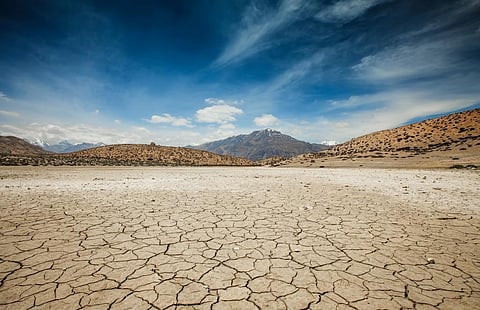

Agricultural drought conditions in the Northern Hemisphere are at least 20 times more likely due to human-induced climate change, according to a new study.
The agricultural drought, prevailing across the hemisphere, had impacted crop production and pushed food prices, noted the study published by the World Weather Attribution group October 7, 2022.
Agricultural drought results in adverse plant responses, ranging from reduced crop and forage yields to total crop or forage failure.
Global warming has caused aridity, particularly in France, Germany and other central European countries. Fire risks, poor harvests and compromised food security in these regions can be attributed to human-induced climate change.
Conditions in the Northern Hemisphere would only have been anticipated once every 400 years if humans had not warmed the Earth. Climate change has altered the likelihood and intensity of low soil moisture across the world, it noted.
The 2022 Northern Hemisphere summer triggered water shortages, large fires, high food prices and significant crop losses.
Researchers examined soil moisture levels in the Northern Hemisphere for June, July and August. They concentrated on western and central Europe, which had much lower crop production due to severe drought.
In west-central Europe, human-induced climate change increased the likelihood of agricultural and ecological drought by around three to four times.
The results cannot be directly compared due to the differing sizes of the regions, but this does not imply that Europe has been less affected by climate change than other parts of the Northern Hemisphere. Mainland China also endured unusually high temperatures and dryness.
“With further global warming, we can expect stronger and more frequent summer droughts in the future,” said Dominik Schumacher, first author of the study, in a statement.
We need to phase-out the burning of fossil fuels for stabilising climate conditions and avoiding a further worsening of such drought events, said Sonia Seneviratne, the lead author of the study, in a media statement.